Headlines
- The United States and Canada are reportedly approaching a trade agreement regarding aluminum, steel, and energy.
- The United States also signed a deal with Australia, designed to boost the supplies of rare earths and other critical minerals.
- Japan’s parliament elected Sanae Takaichi as prime minister; she subsequently appointed Satsuki Katayama as finance minister.
Global Economics
United States
- The pace of US same-store sales growth slowed in the latest week.
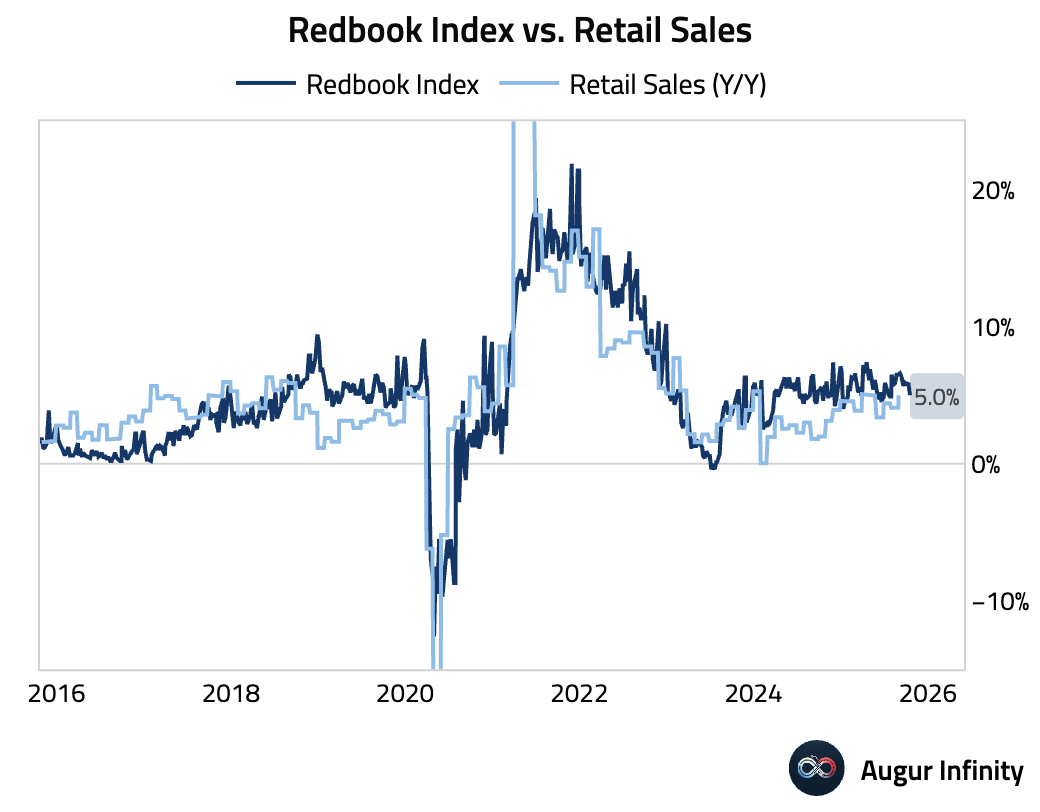
- Tariff revenue continues to run at very high levels.
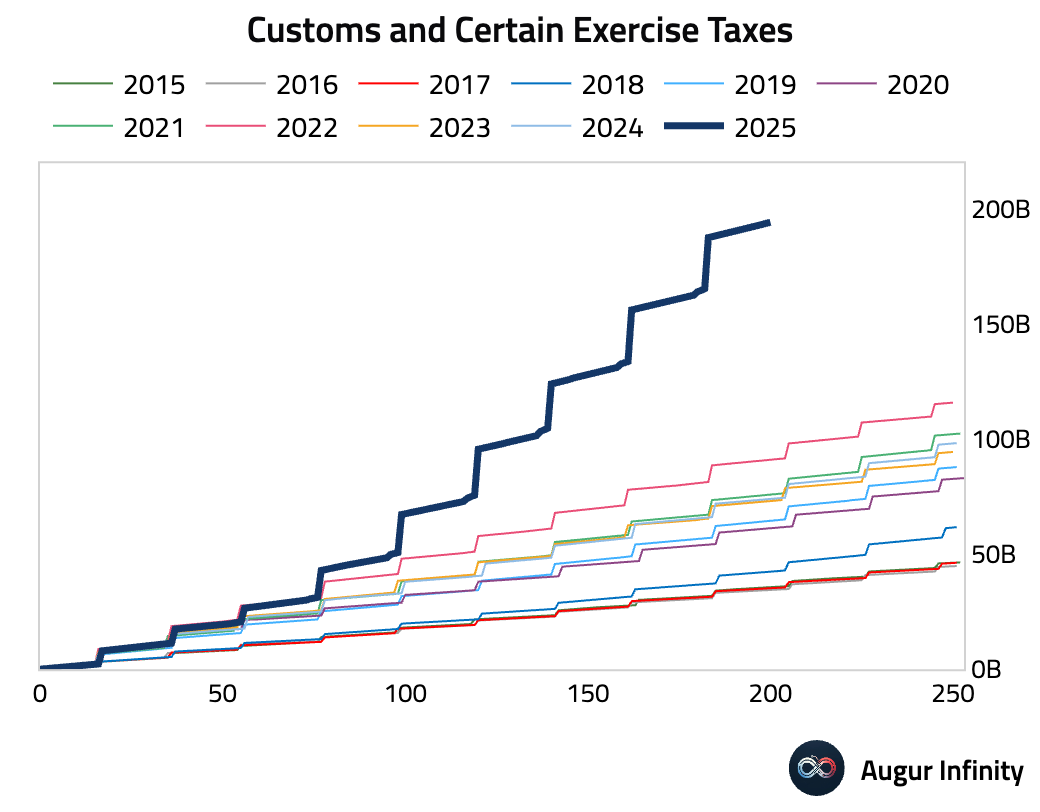
- Consumers face an overall average effective tariff rate of 18%, the highest since 1934. After consumption shifts, the average tariff rate will be 17%, the highest since 1936.
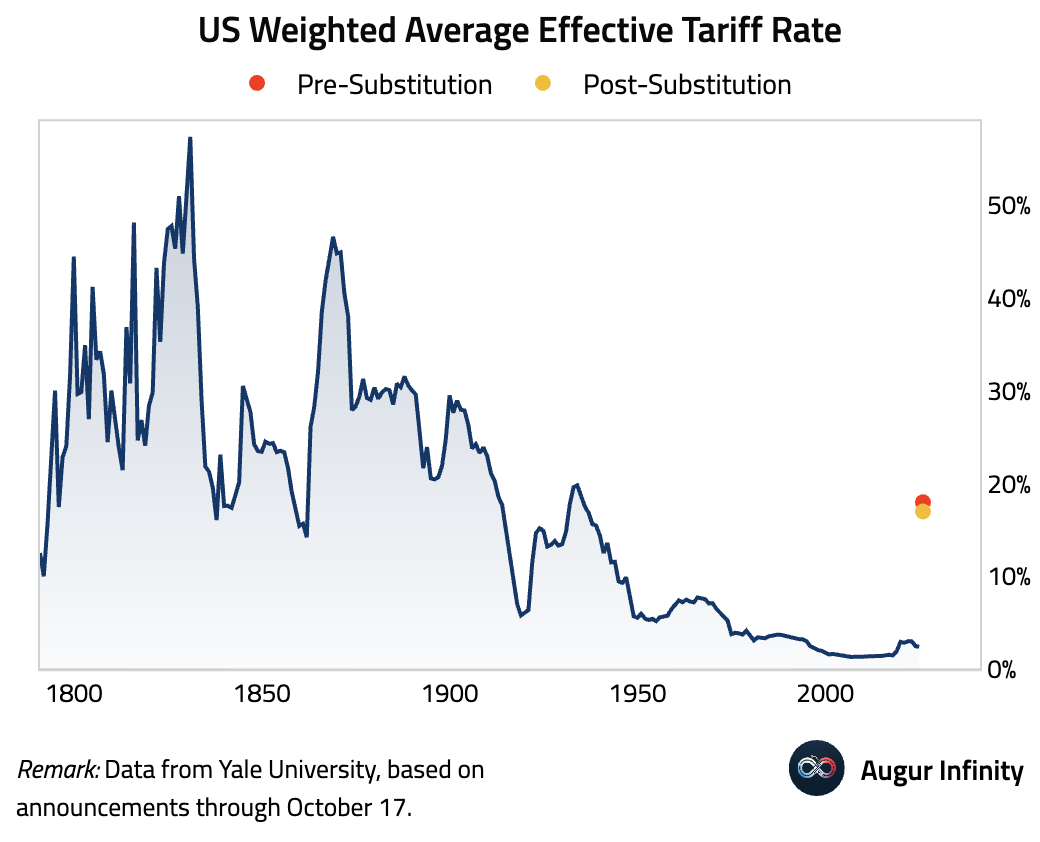
Source: the budget lab
- The ASA staffing index, which tracks temporary and contract employment, has stayed above 2024 levels for four weeks.
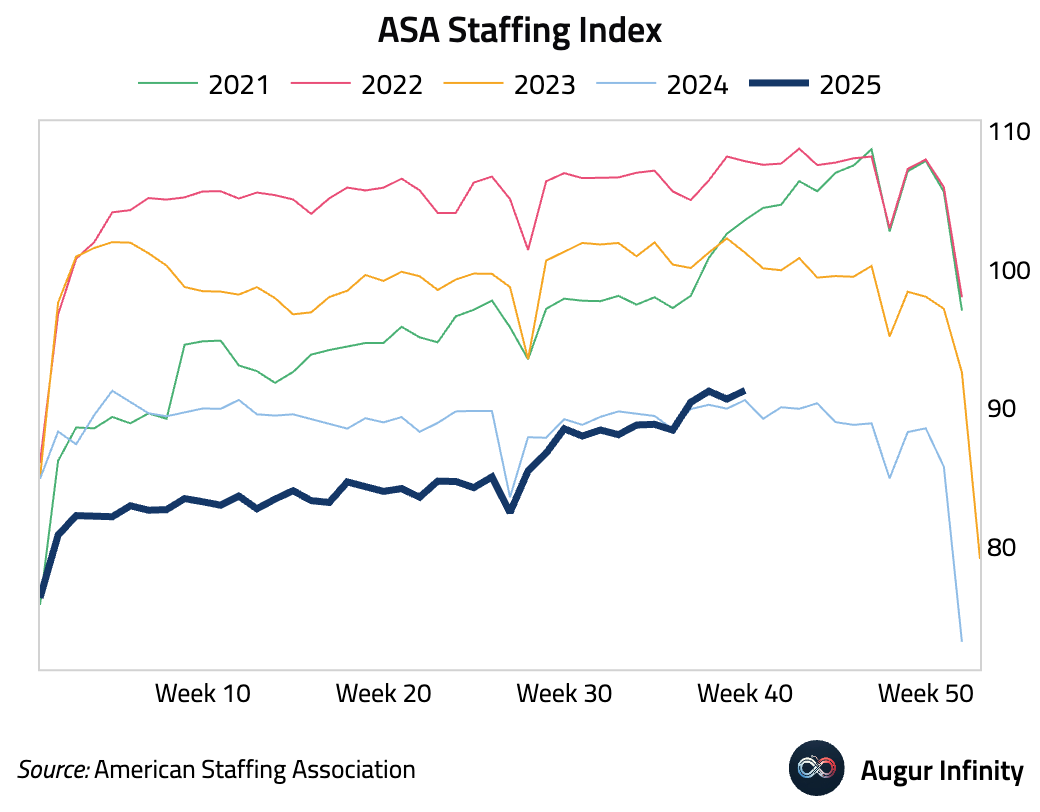
Canada
- Canadian headline inflation accelerated more than expected in September. Core measures also heated up. While a base-year effect from gasoline prices was a key driver, the data indicates that underlying inflation remains firm.
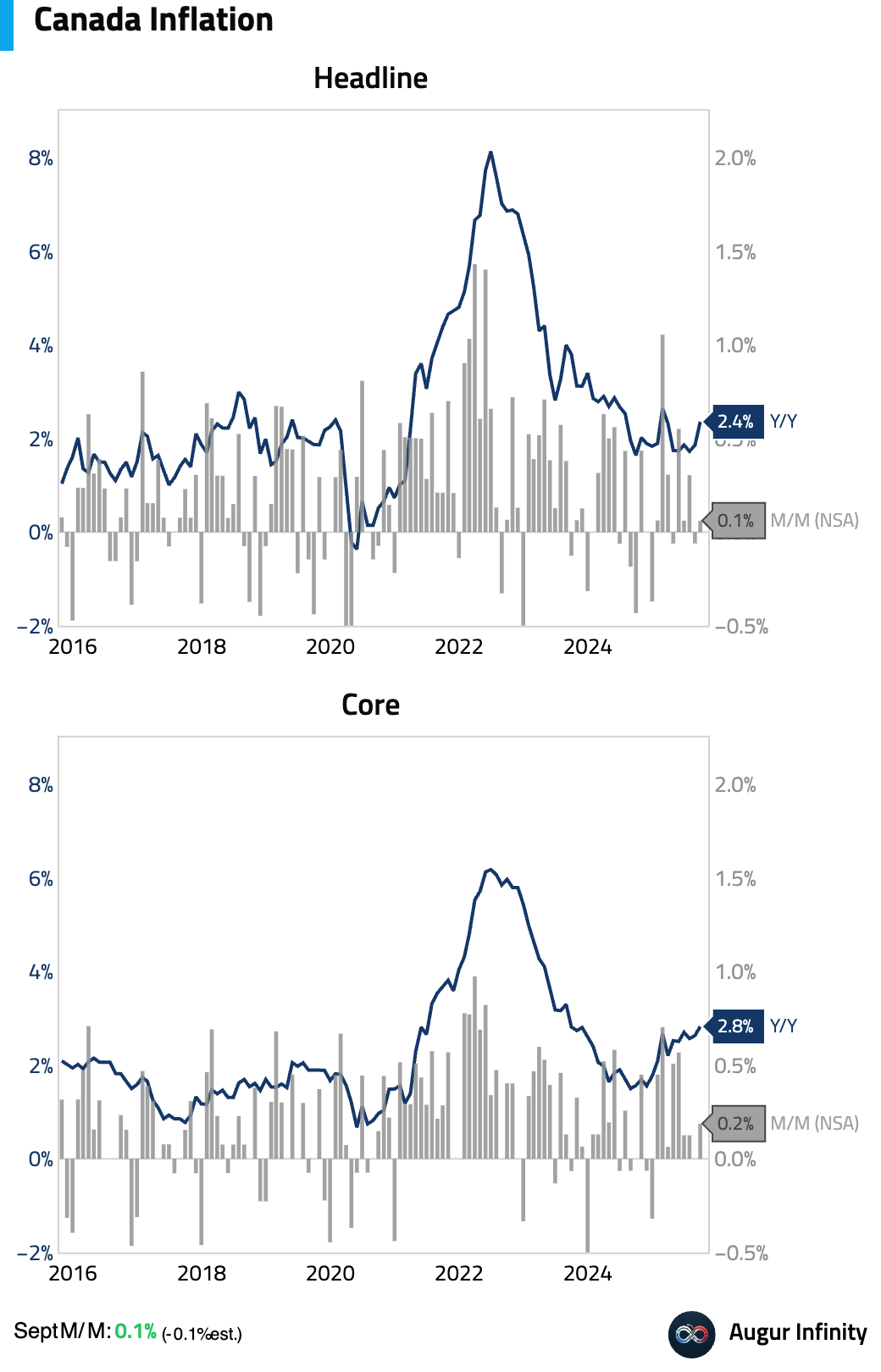
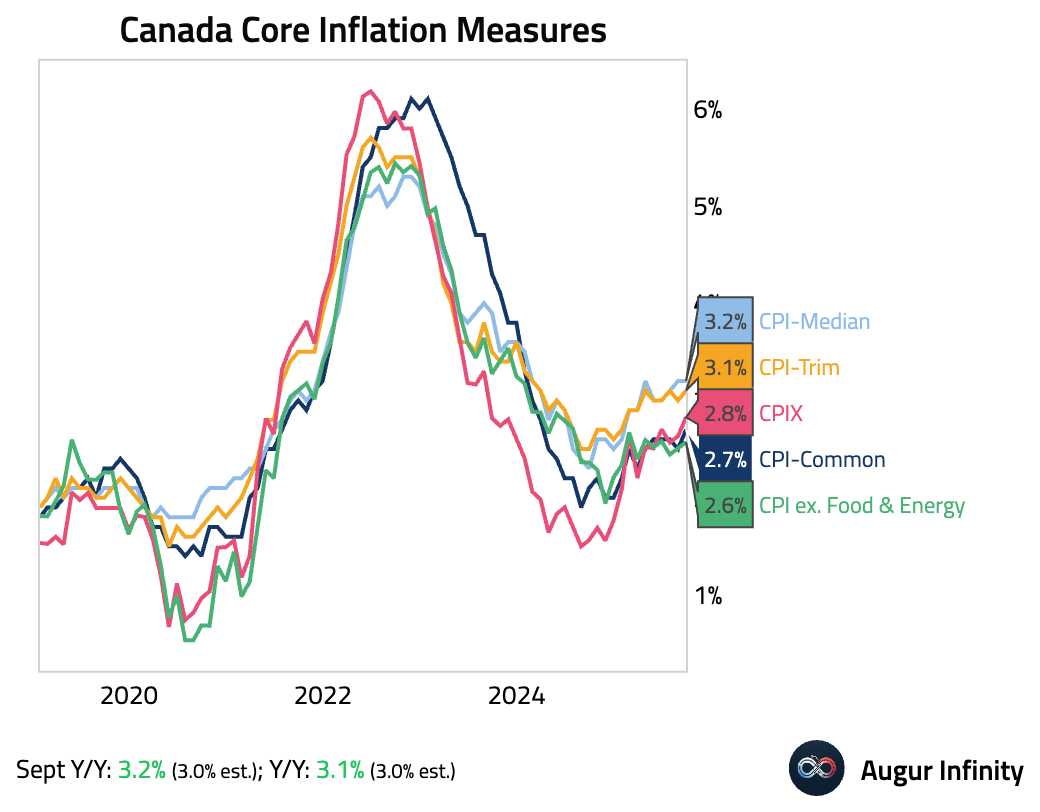
Europe
- UK public sector net borrowing (excluding banks) increased in September but came in slightly below consensus expectations.
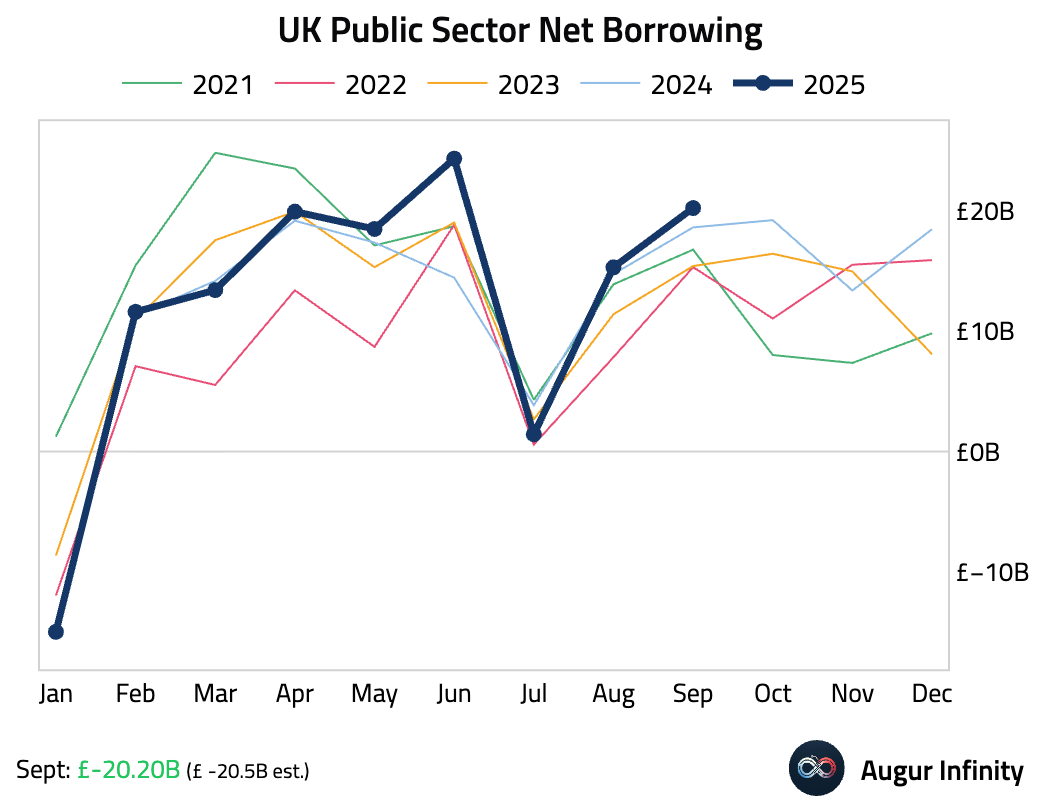
- Switzerland's trade surplus narrowed in September to its lowest level in four months.
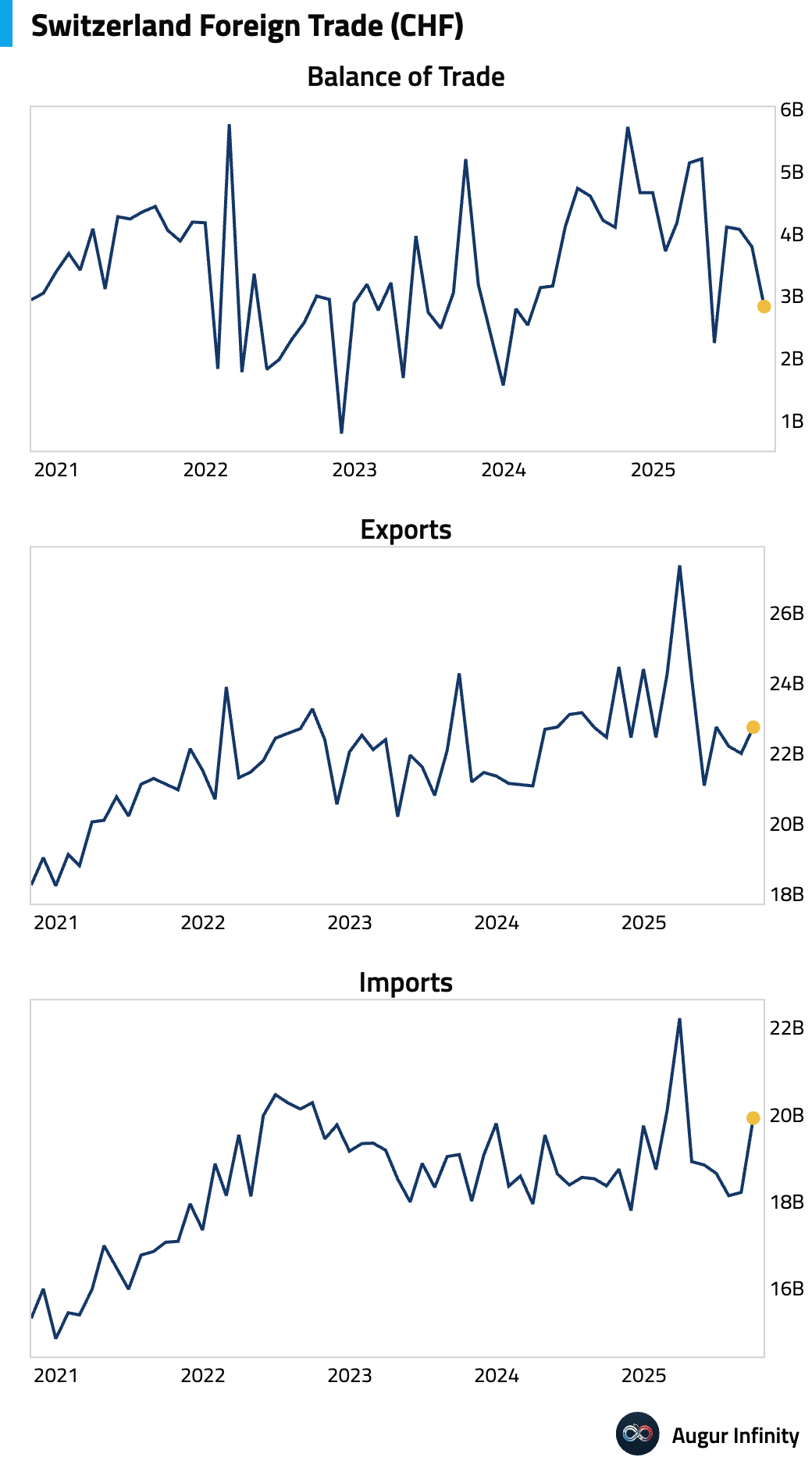
- Belgian industrial production contracted month-over-month in August but returned to positive year-over-year growth for the first time in three months.
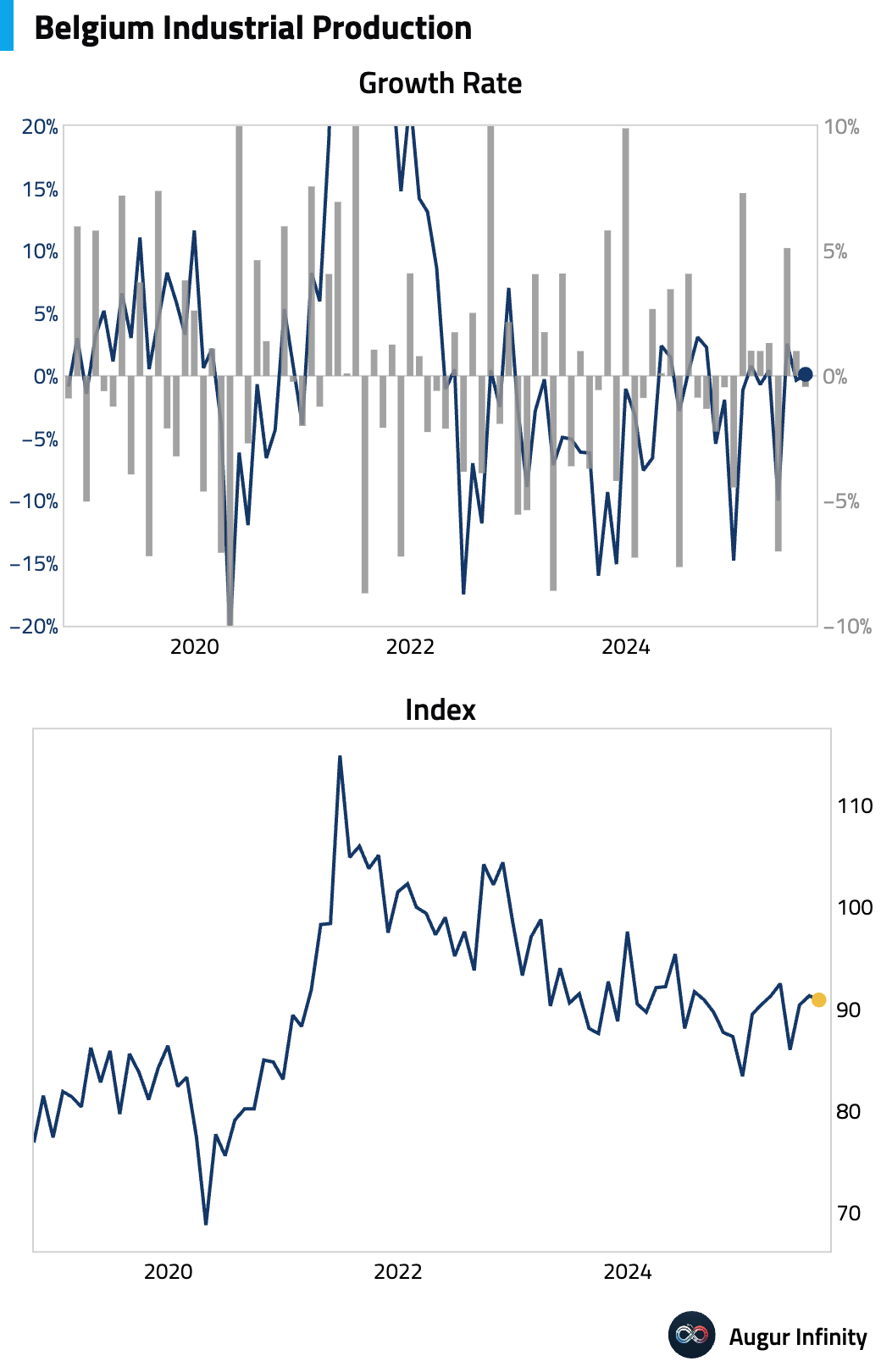
Asia-Pacific
- New Zealand’s trade deficit widened in September as exports edged down while imports rose to a three-month high. (Balance: -NZ$1.36B, prev: -NZ$1.24B)
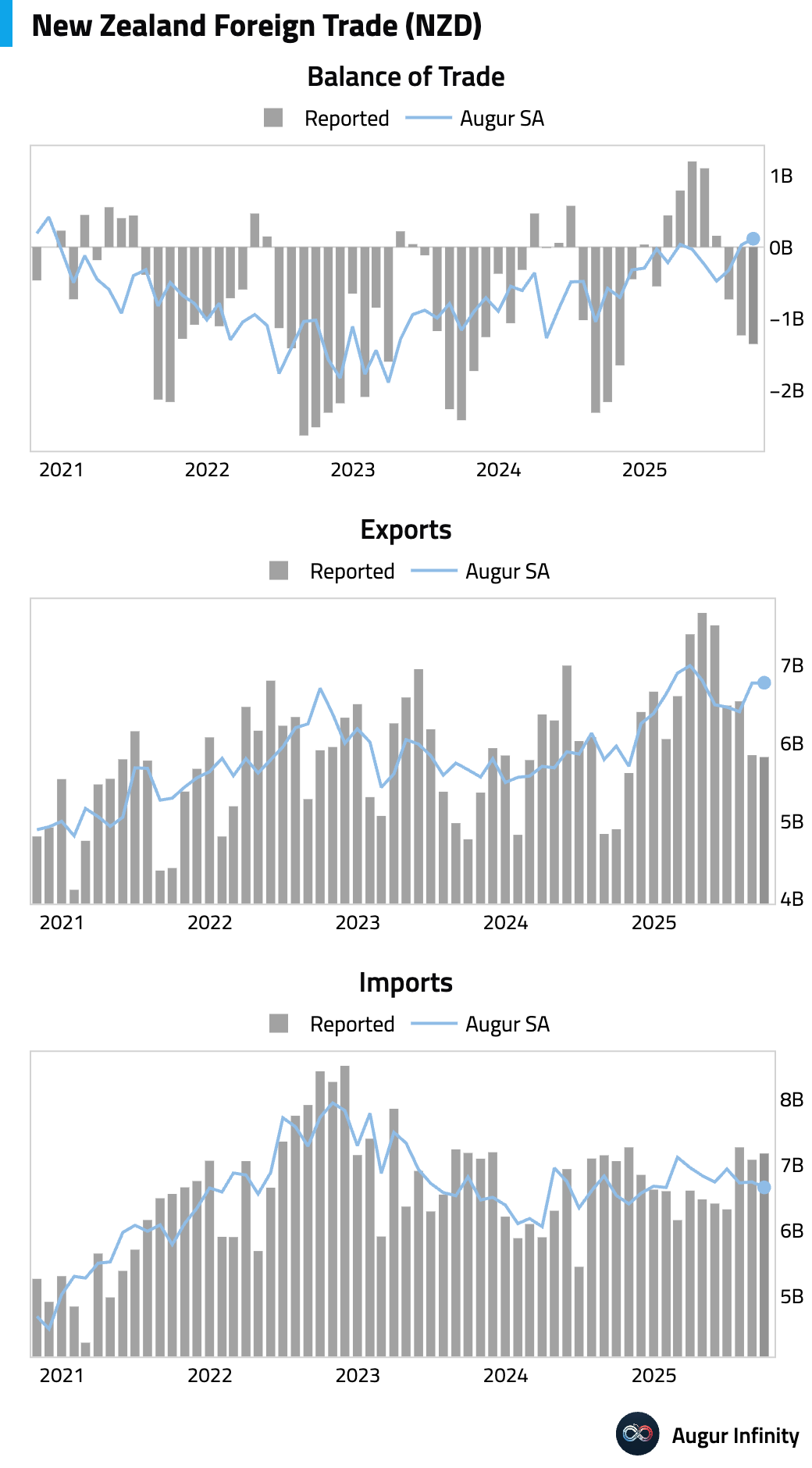
Interactive chart on Augur Infinity
- Taiwan's export orders surged by 30.5% Y/Y in September, dramatically exceeding consensus estimates of 17.8%. The strong performance points to robust global demand for the island's technology products.
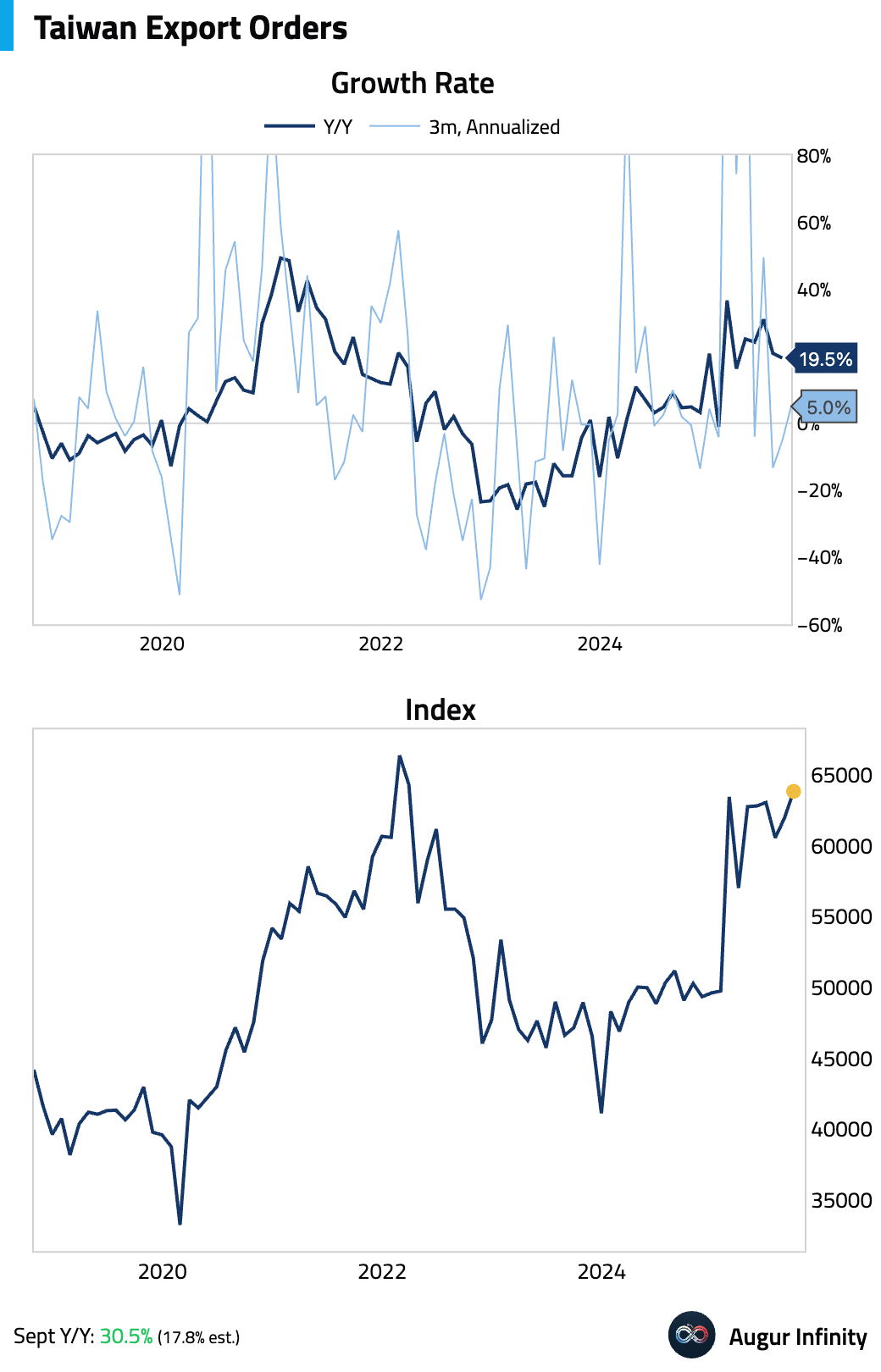
Emerging Markets ex China
- Growth in India's infrastructure output decelerated sharply in September, marking the slowest expansion in three months.
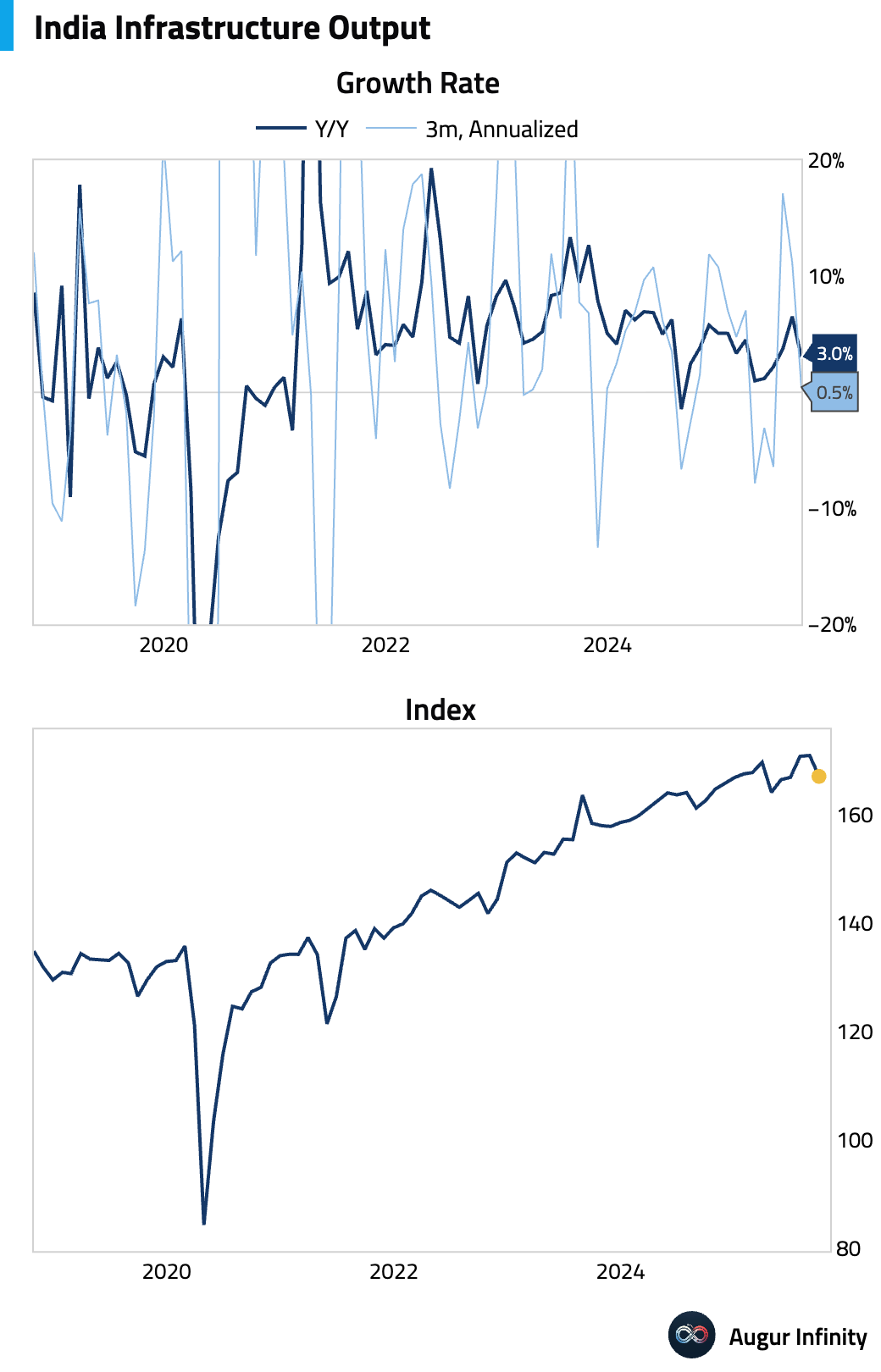
- South Africa’s leading business cycle indicator accelerated in August, rising at the fastest pace since April 2024.
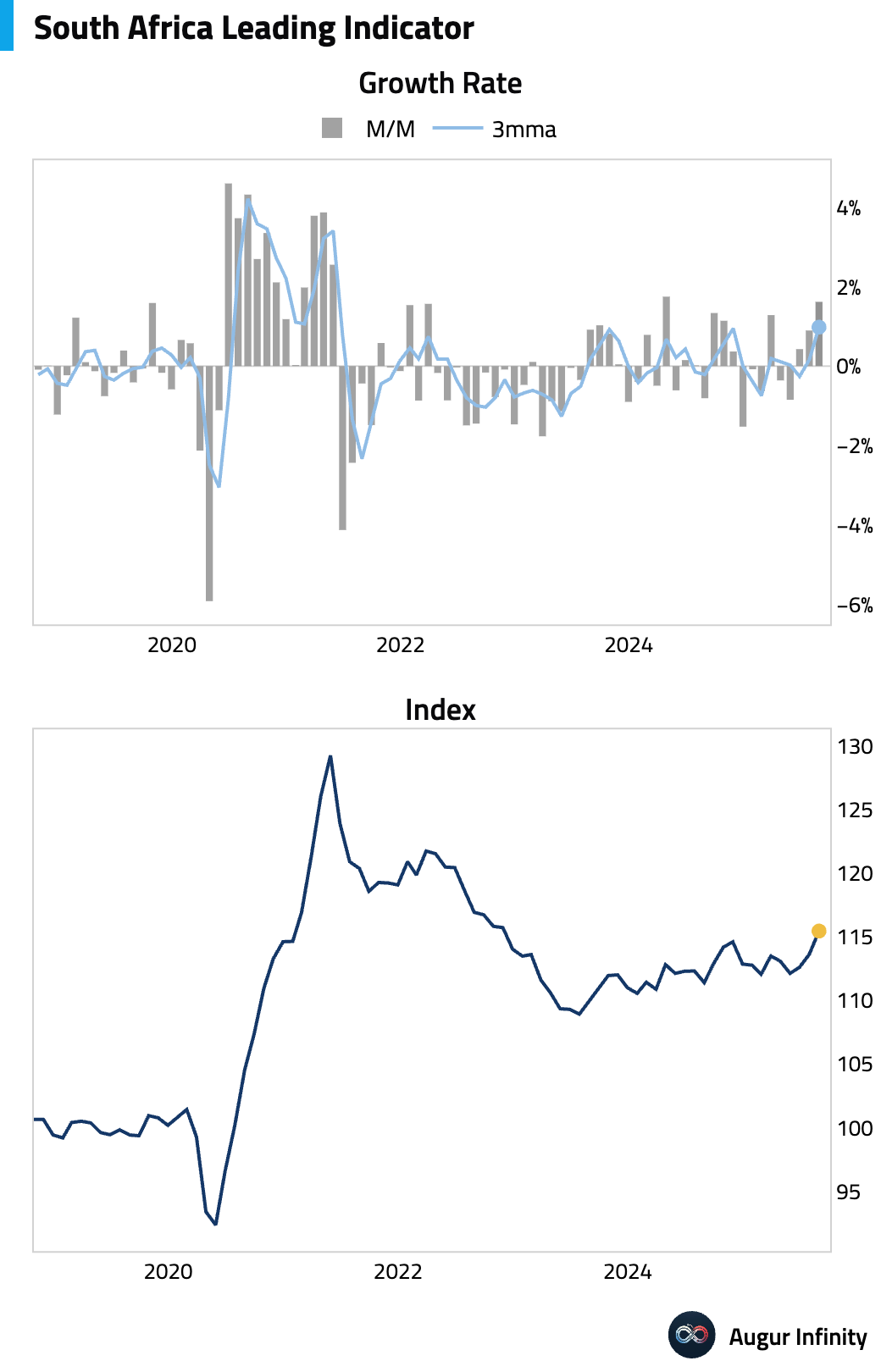
- Hungary's central bank held its key interest rate at 6.5%, the highest in the European Union. The bank is prioritizing its fight against inflation, which remains above 4%, and supporting the forint, defying government pressure for rate cuts. Markets now expect rates to remain on hold for the rest of the year.
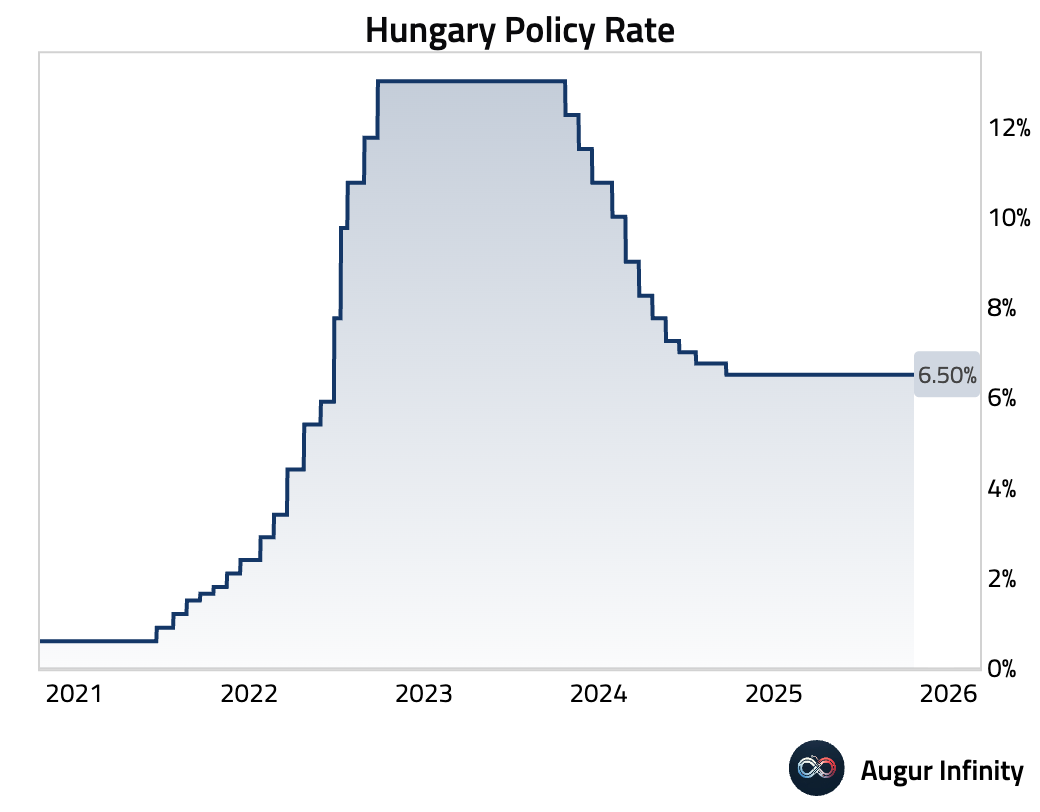
- South Korea's working-day adjusted exports for the first 20 days of October rose 9.7% Y/Y, a strong rebound from September's -6.1% drop. The headline strength was driven by semiconductors (+20.2%), but the data is heavily distorted by the Chuseok holiday timing. US tariffs are weighing on key sectors, with auto exports slumping 25% and total shipments to the US falling 24.7%.
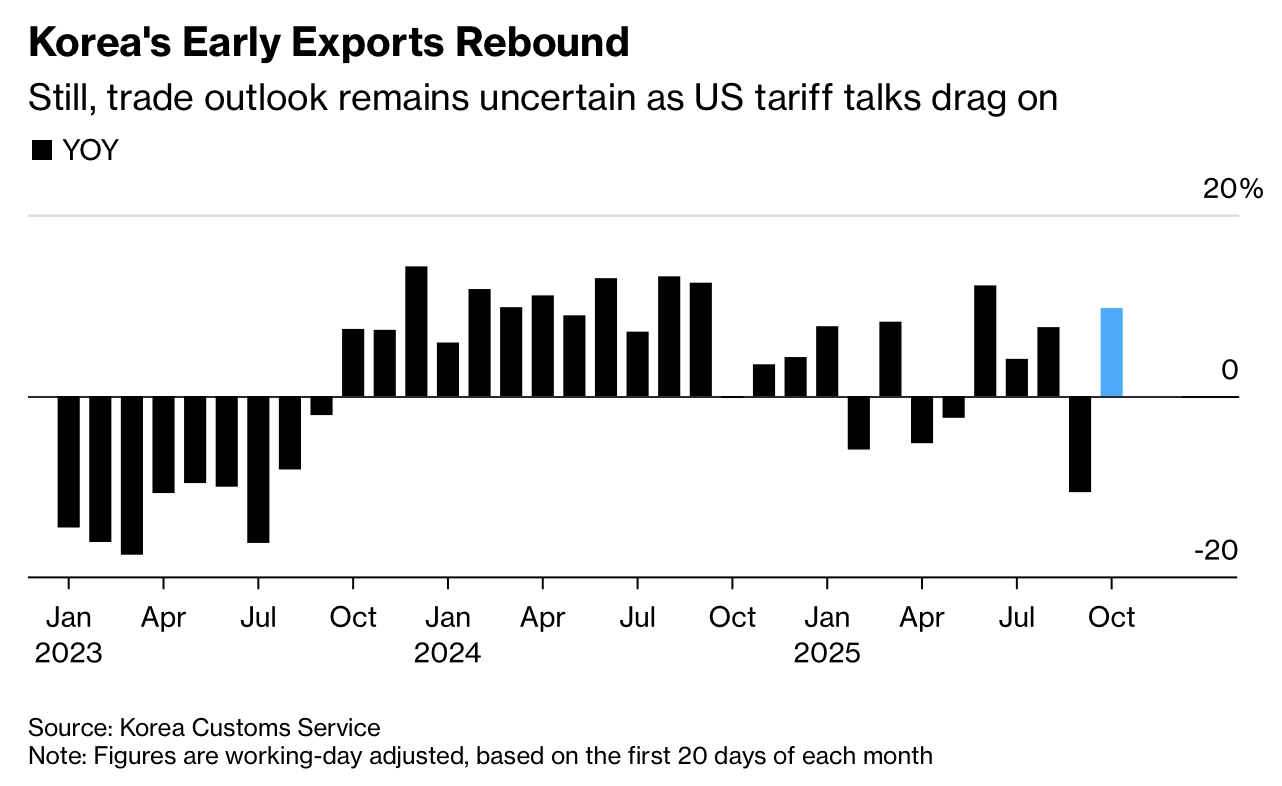
Source: Bloomberg
Global Markets
Equities
- US equities were unched, with the S&P 500 just missing out on a third consecutive day of gains. Sentiment was buoyed by corporate earnings expectations. Elsewhere, performance was weaker, particularly in South Korea (-1.7%), Canada (-1.4%), China (-1.3%), and Mexico (-1.3%). Mexico recorded its third straight session of losses.
- The market is pricing for roughly the same long-term earnings growth for the US and China.
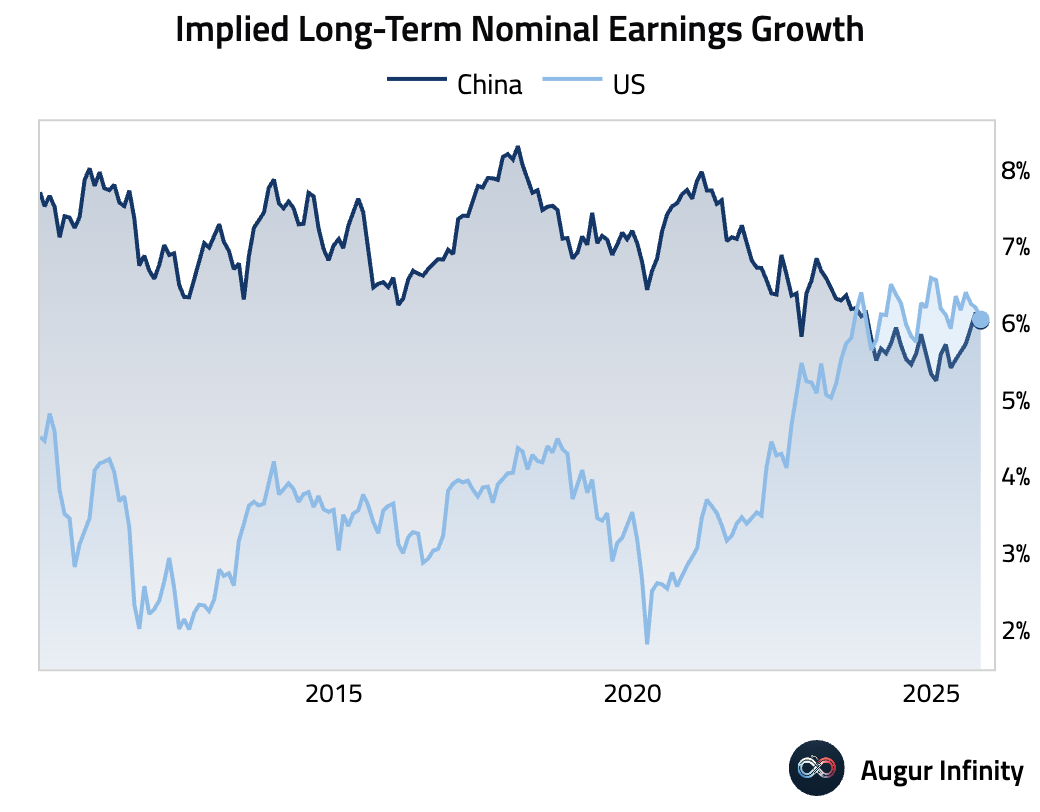
- S&P 500 Health Care is at the highest level since March 2025.
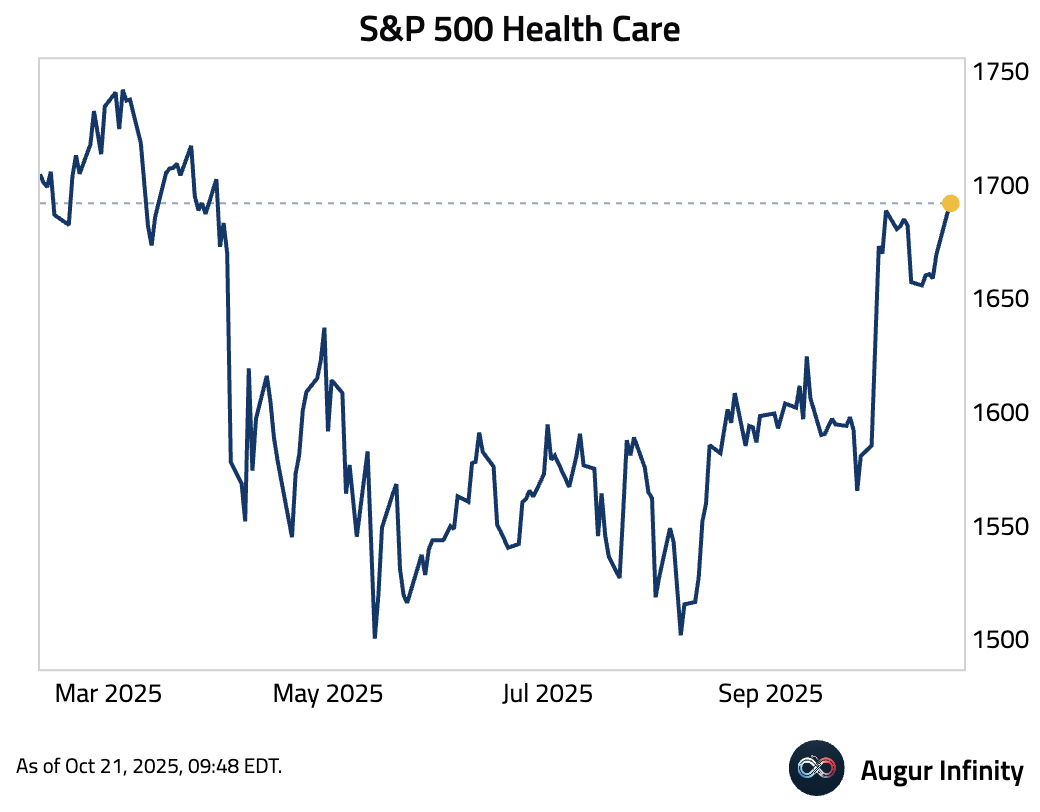
- Euro Stoxx 50 managed its tenth all-time high this year.
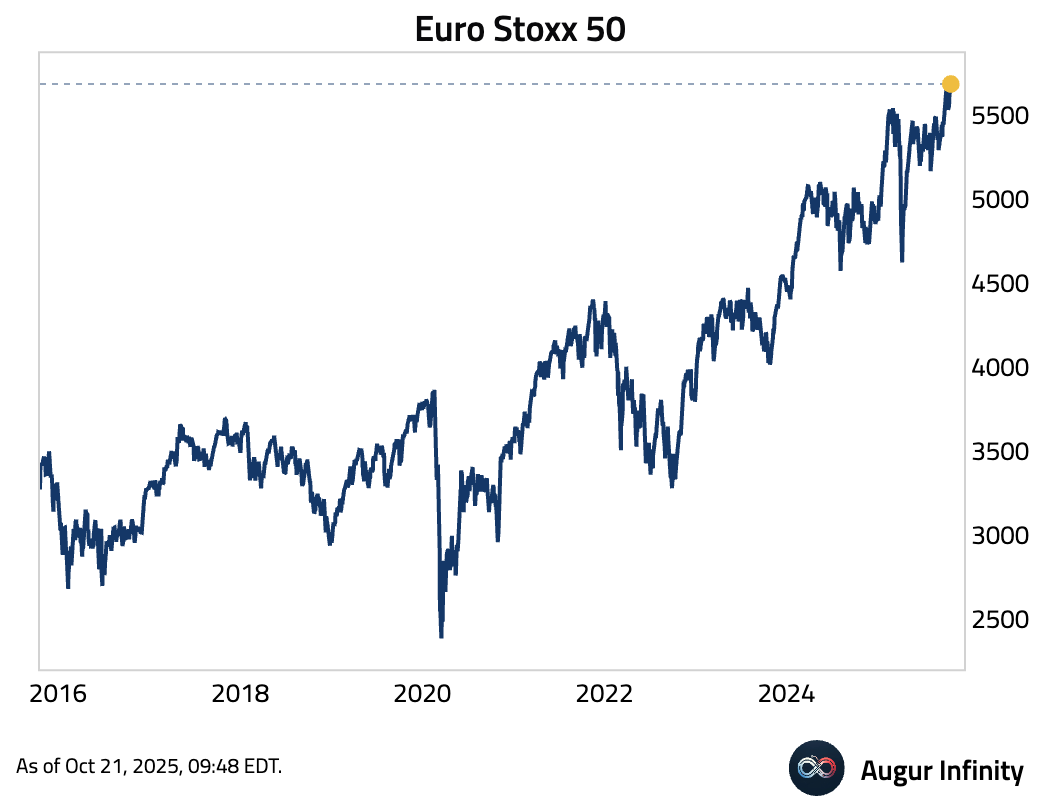
- TOPIX Index has reached its 20th all-time high of 2025.
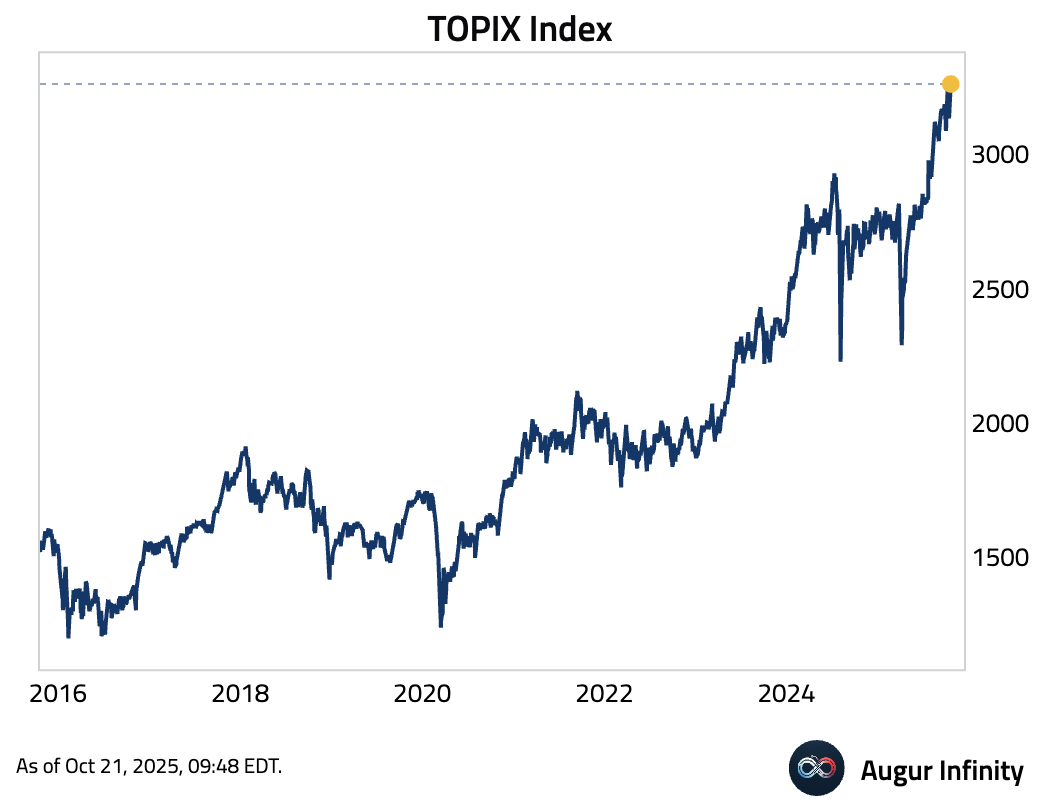
- S&P/ASX 200 also reached its 20th all-time high of the year.
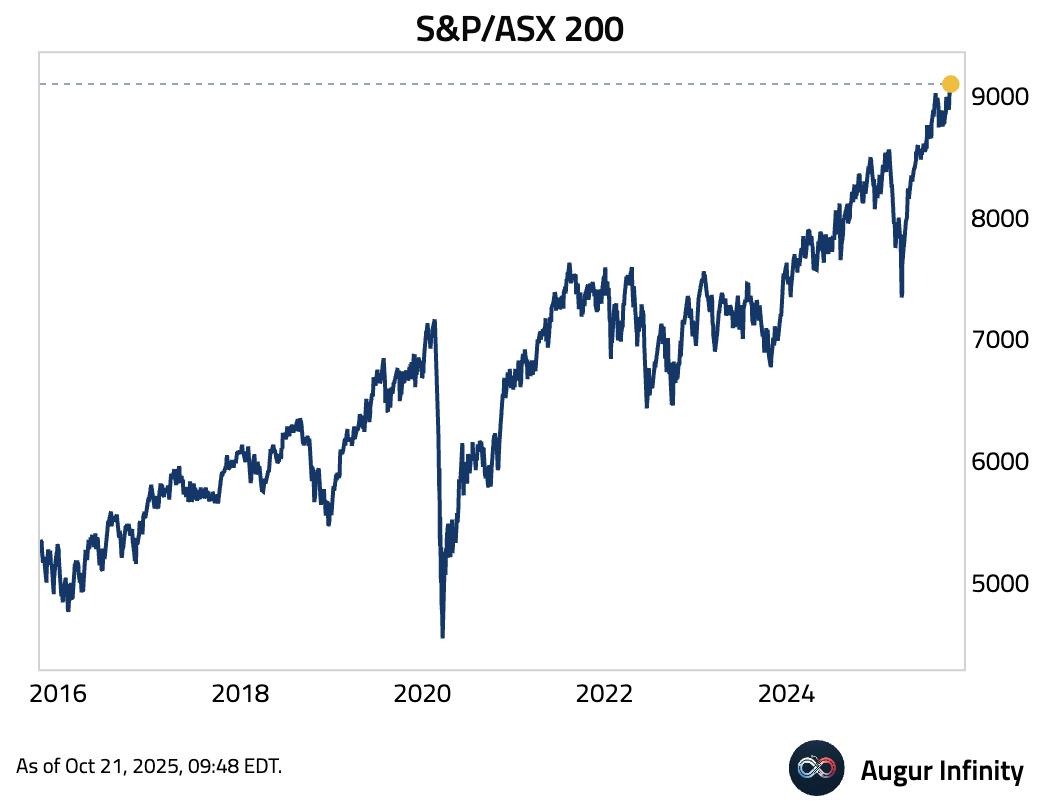
- Korea's KOSPI Index gained for the fifth session.
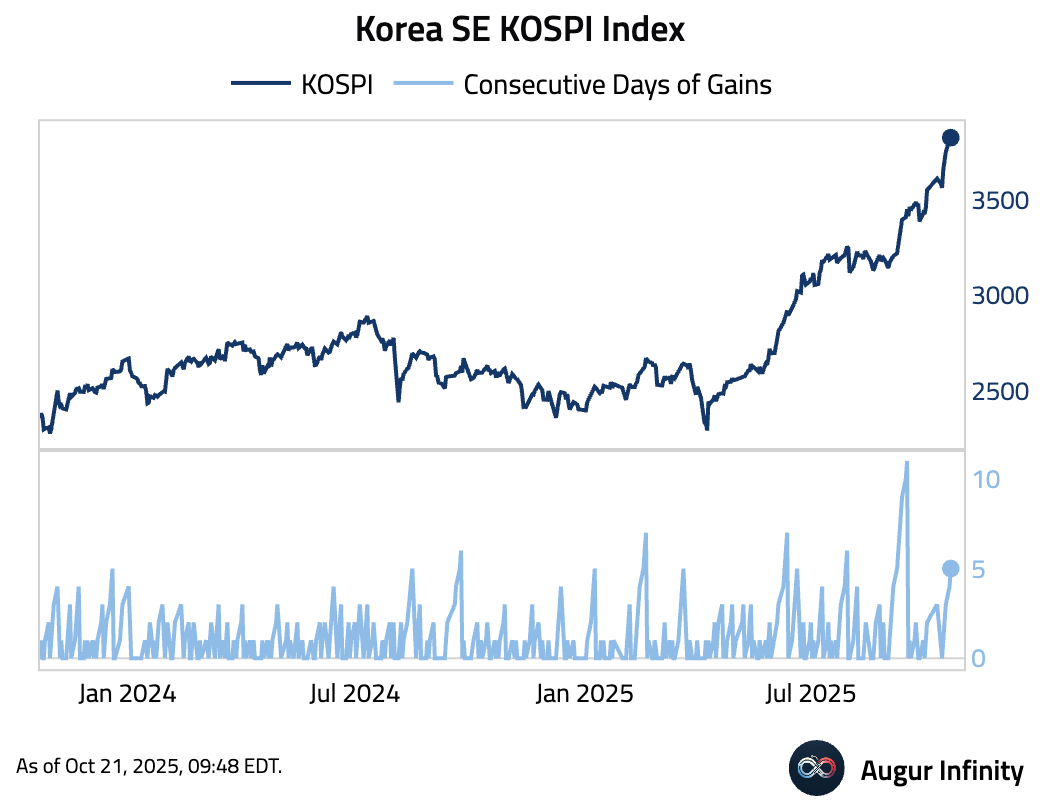
- Taiwan SE Weighted Index continues to surge.
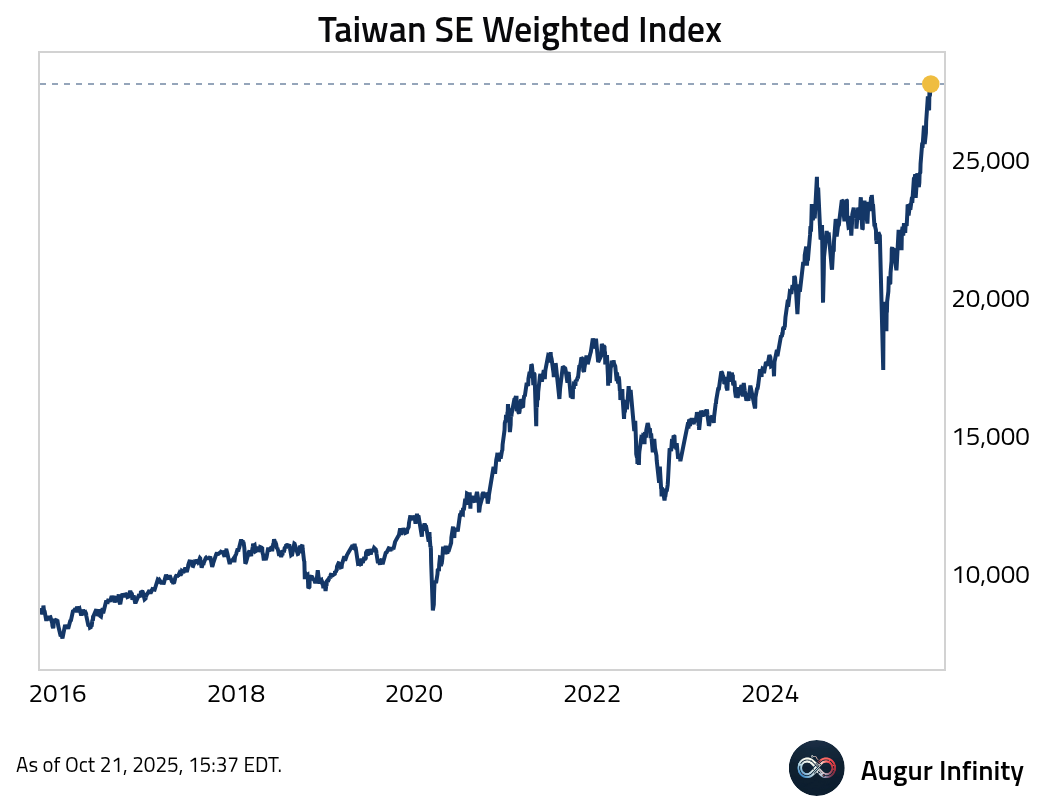
Fixed Income
- US Treasury yields declined across the curve in a flattening move. The 10-year yield fell 2.8 bps, while the 2-year yield dipped 0.9 bps and the 30-year yield dropped 3.4 bps.
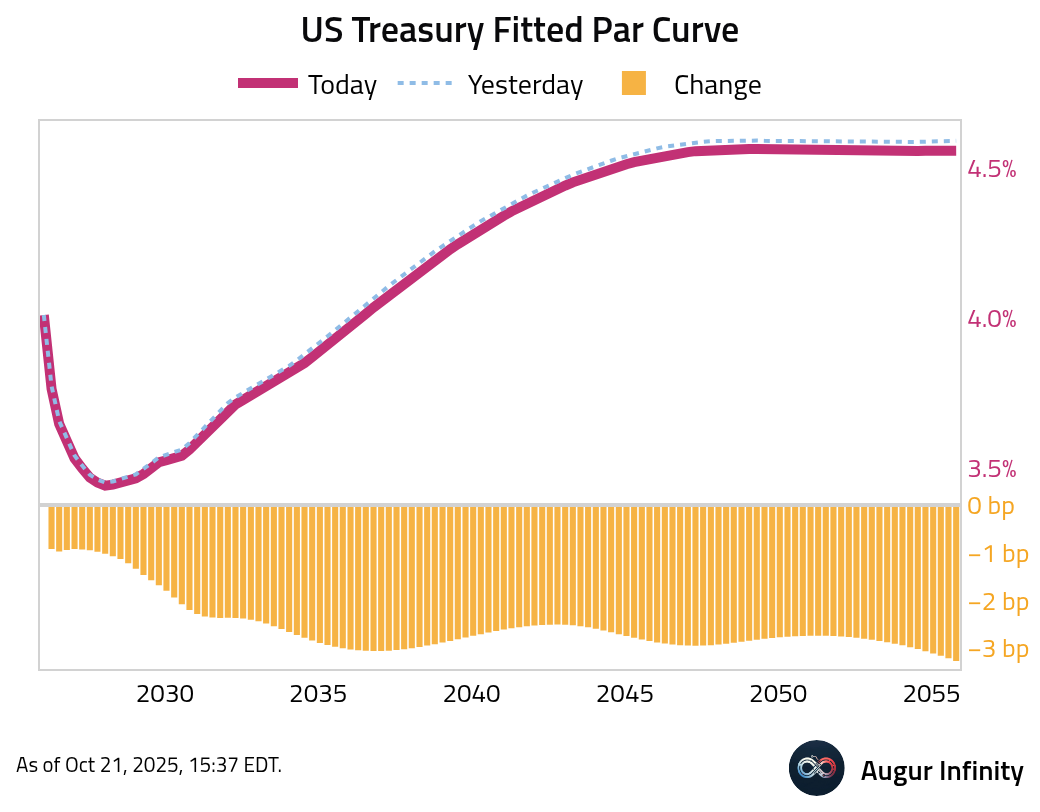
- US Treasury 10-year yield has declined to the lowest level since October 2024.
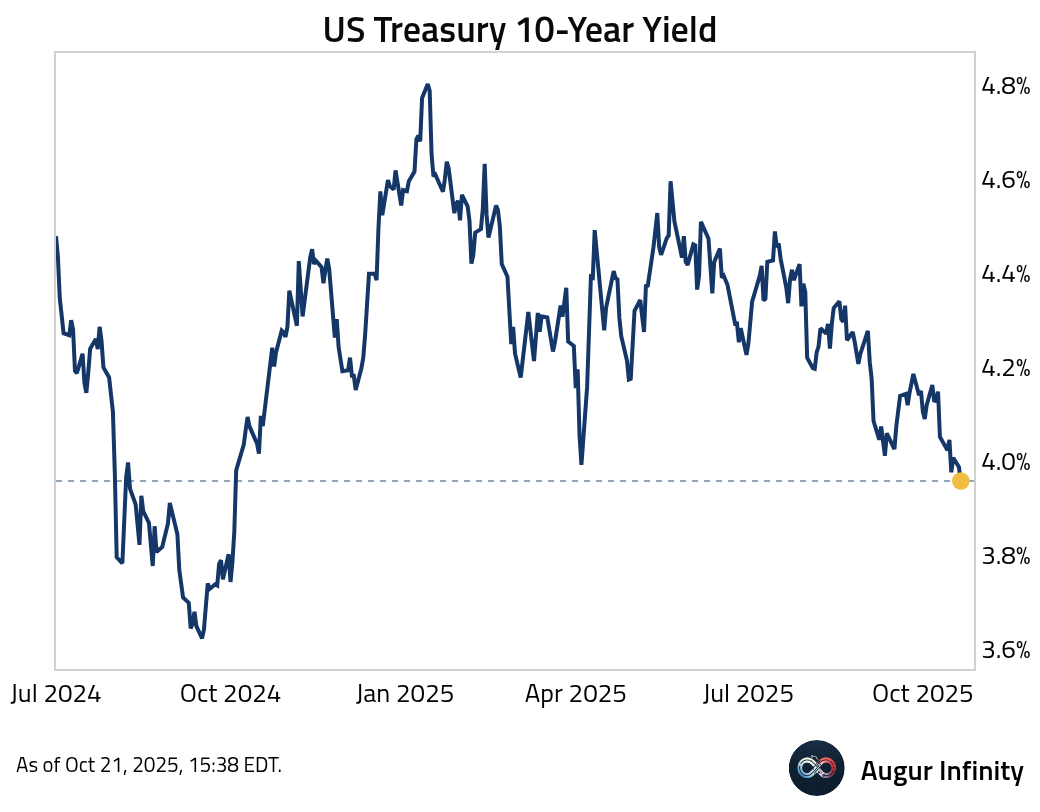
- The decline in bond yield has been far more pronounced than the dip in economic surprises.
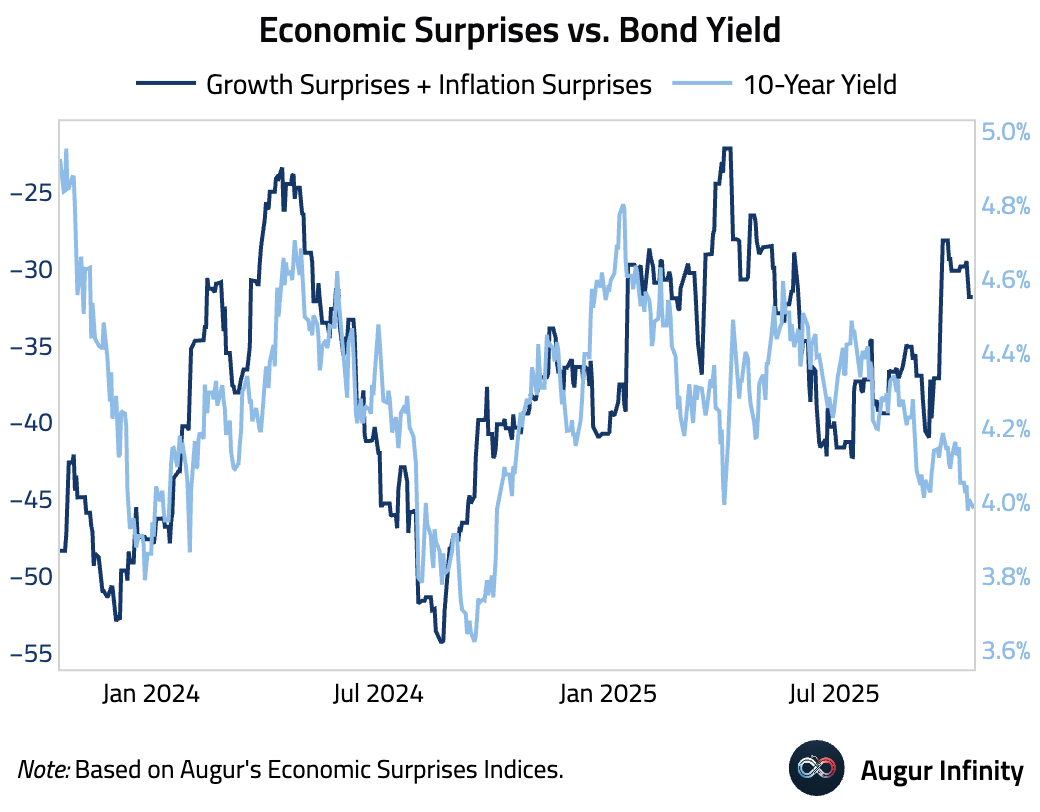
- Speculative-grade default rates have declined in recent months.
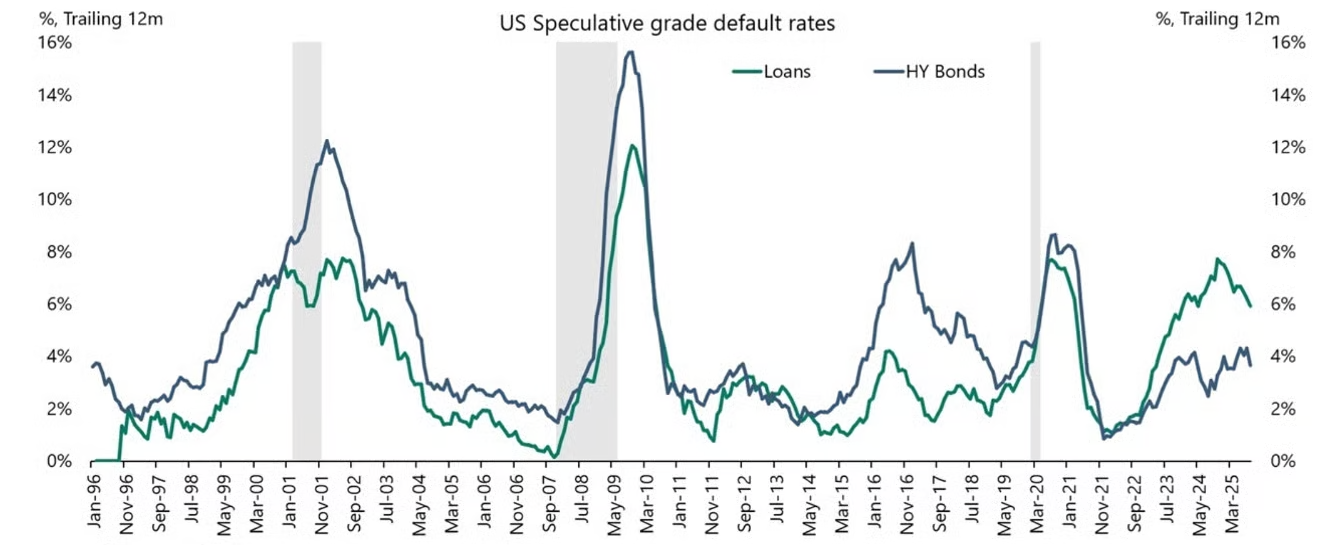
Source: Apollo
FX
- The US dollar strengthened against most G10 peers. The Japanese yen was the primary underperformer, weakening by 0.9%. The Swiss franc (-0.7%) and the euro (-0.4%) also posted notable losses, with the latter falling for a third consecutive day. The Canadian dollar was an exception, managing a 0.1% gain against the greenback.
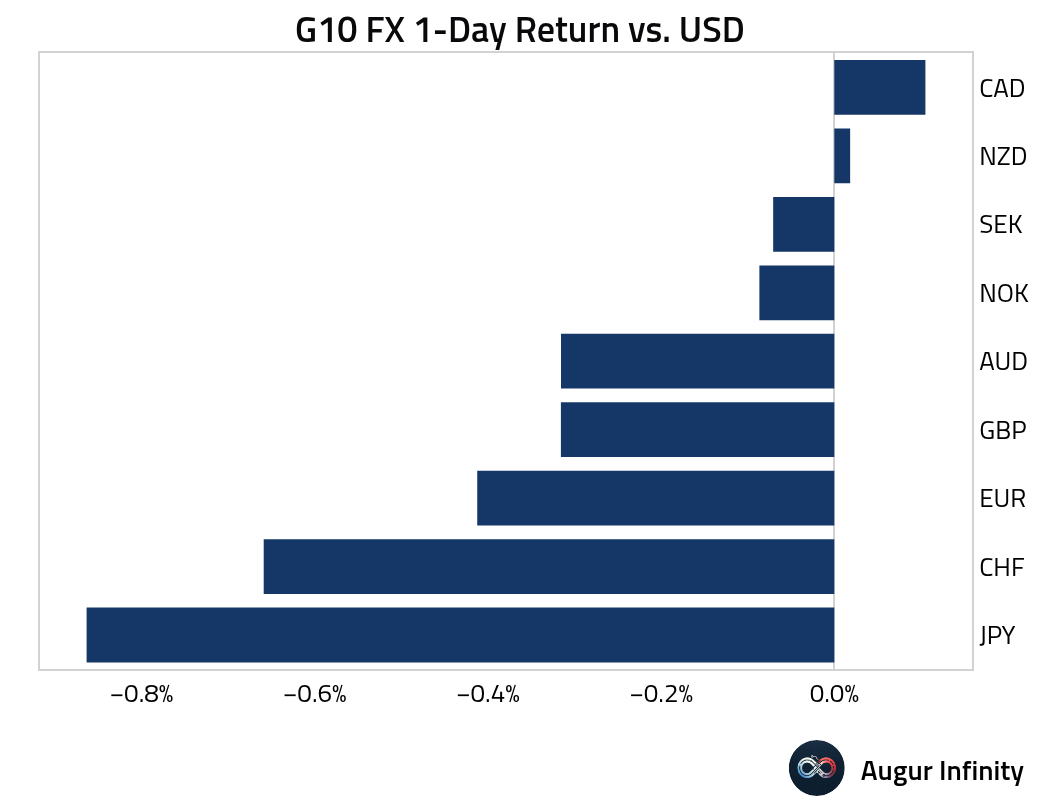
Commodities
- Gold had the worst day since June 2013.
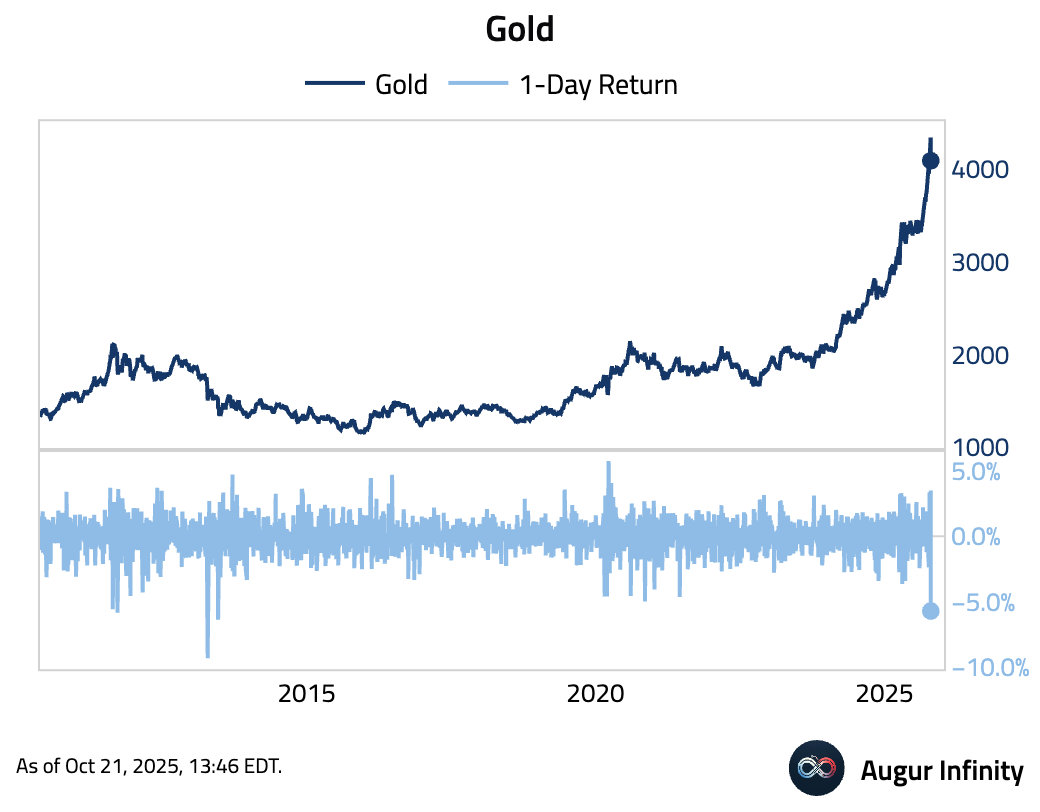
- Silver is down nearly 7%, the worst day since April.
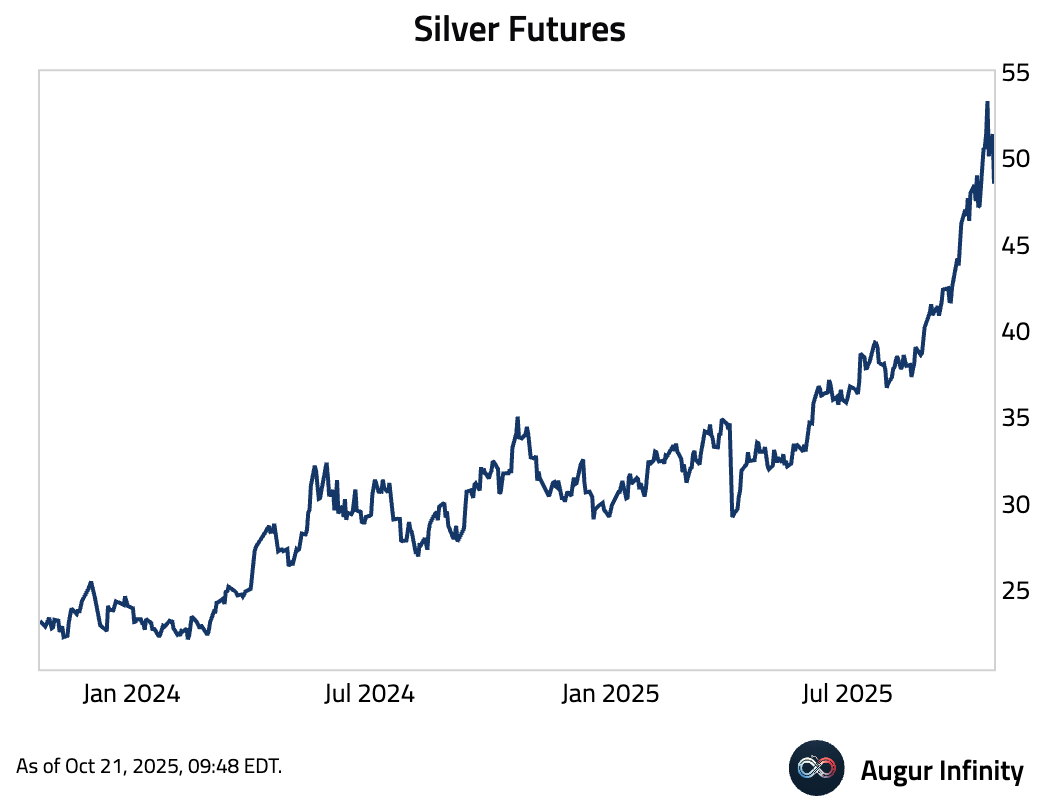
- The LME zinc market is undergoing a sharp supply squeeze as inventories plummet and traders scramble for the remaining stock.
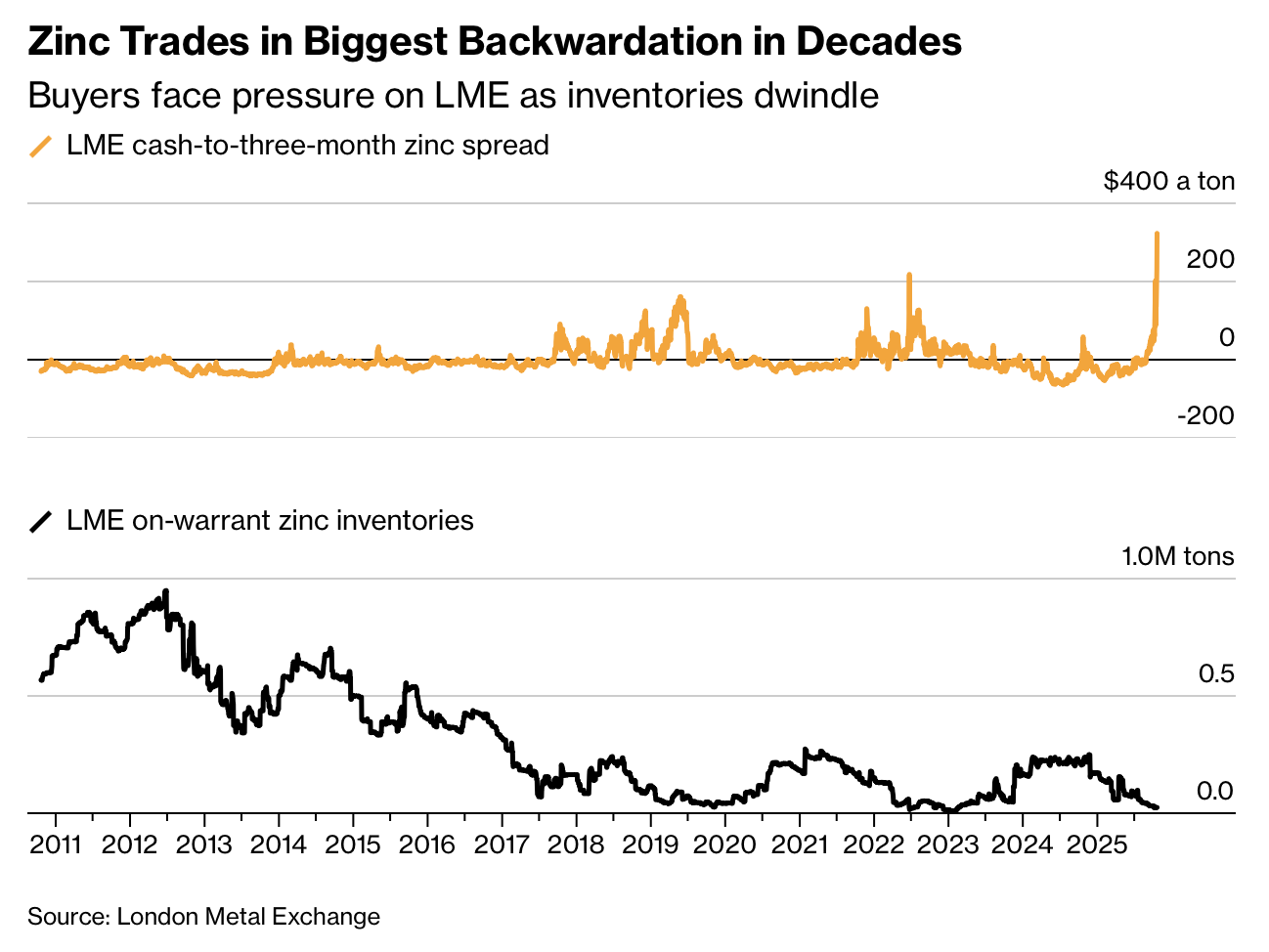
Source: Bloomberg
Disclaimer
Augur Digest is an automatically generated newsletter edited by humans. It may contain inaccuracies and is not investment advice. Augur Labs LLC will not accept liability for any loss or damage as a result of your reliance on the information contained in the newsletter.

